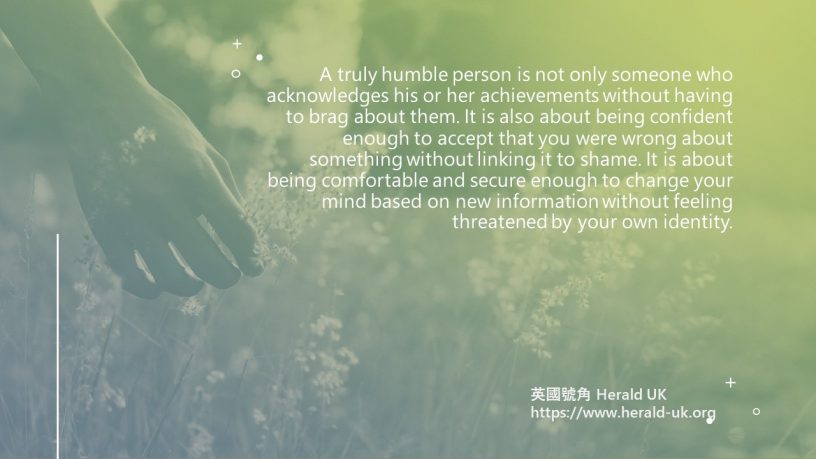Wynne C
Have you ever been so sure about something only to be proven wrong?
The Baader-Meinhof phenomenon is a cognitive bias in which we tend to see a particular thing everywhere after noticing it for the first time. It gives us the illusion that everyone is talking about the same thing. This is magnified multi-fold with the Internet where it shows us similar content as it learns about what we read or watch. This in turn surrounds us with potentially skewed beliefs or propaganda, which feeds our confirmation bias that what we believe is accepted by the wider population. We believe that everyone thinks the same, hence it must be true!
We, as humans, have an innate desire to be right. We don’t like being told information that is contrary to what we believe.
Humility seems to be a quality that has gone out of fashion. We look up to people who are strong, independent, assertive, confident and proud of their achievements. In our subconscious, we feel humility does not play a significant or any part in the equation of a successful individual’s journey.
Here is a challenge to our view of humility: Perhaps true humility is not thinking less of yourself. Perhaps it does not mean having low self-esteem or a lack of confidence. Perhaps it encompasses strength, independence and assertiveness. Could it be that true humility is not the opposite of all the wonderful traits of the type of person we look up to in this day and age?
A truly humble person is not only someone who acknowledges his or her achievements without having to brag about them. It is also about being confident enough to accept that you were wrong about something without linking it to shame. It is about being comfortable and secure enough to change your mind based on new information without feeling threatened by your own identity.
When I was in my second year of medical school, I was taught that once someone develops type 2 diabetes, it is a lifelong, irreversible condition where most people need to take medication to prevent complications. I took this as a cold, hard fact for many years until I was confronted with a growing number of studies that showed diabetes remission was possible with effective and sustainable weight loss. This was groundbreaking new information that changed my mind about something I held an unwavering belief in.
The best thing about being wrong is that we have a new set of information that keeps us from being ignorant!
I remember frequenting a popular convertible belt sushi restaurant with my family as a young child in Malaysia. Rotating plates of maki and California rolls felt like the best thing ever! My family and I were very adventurous with food, so as the market for Japanese cuisine expanded, we were excited to try a wider variety of Japanese dishes. It was like a whole other horizon had opened up as our palates were introduced to the likes of ramen, teppanyaki, sukiyaki and tuna belly!
In the same way, in life, as we allow ourselves to be humble recipients of new information, we become more open-minded, more likely to listen to what other people have to say and more willing to develop a true understanding of ourselves, others and the wider world. Allowing ourselves to change our minds is a marker of true growth!
Here are some practical tips on how to get started:
- Embrace our fallibility as humans.
- Spend time with people with whom you listen more than you speak.
- Be on the lookout for fun opportunities to learn, whether it be through TV, podcasts, conferences or even a holiday!
- Ask for honest feedback from trusted loved ones. This is a great way to develop self-awareness.
- Put aside a few minutes at the end of your day for self-reflection. Ask yourself, “Was that the right thing to say (or do)?”, “Did I wholeheartedly believe in what I was arguing about?”, “Is it possible that I could have been wrong here?”
Bengali poet Rabindranath Tagore writes, “We come nearest to the great when we are great in humility.”











